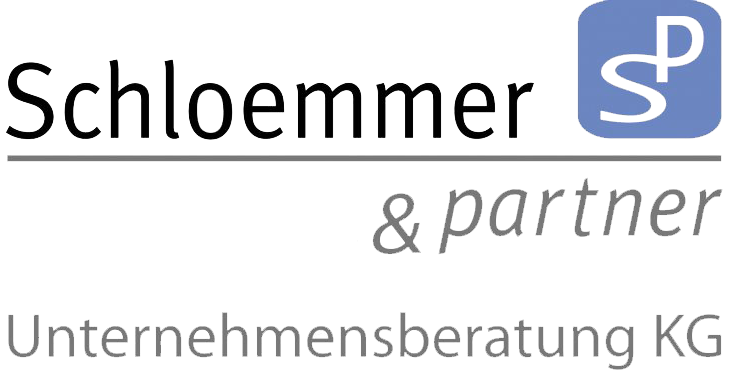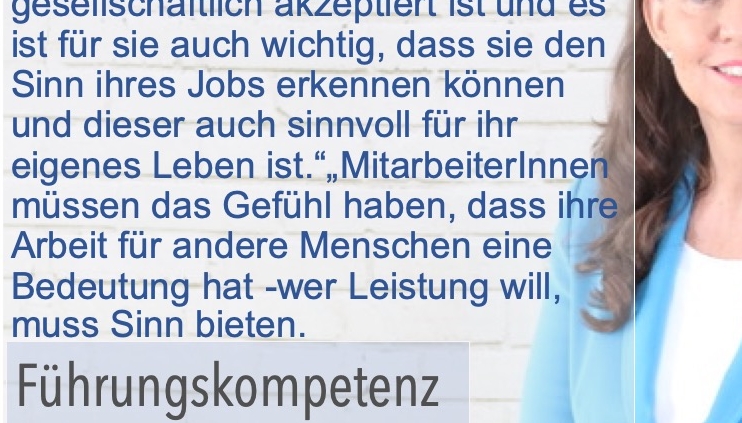You are currently viewing a placeholder content from Default. To access the actual content, click the button below. Please note that doing so will share data with third-party providers.
Danke an die Firma Lindlpower für die Veröffentlichung meines Artikels auf der Homepage. Alle Kunden von Lindlpower können mit dem CODE lindlpower kostenlos im Bereich Blended Learning unsere onlinetrainings ansehen.
Question-Answer Catalog
At the beginning of November 2020, on the occasion of the impending “lockdown light”, a political agreement in principle was reached on various changes to special care time, which are to come into force retroactively from November 1, 2020 (“Special care time 4.0”). This primarily concerns the creation of a legal entitlement for employees, an extension of the possible duration from three to four weeks and an increase in employer reimbursement from 50 % to 100 % of continued remuneration. What no politician mentions, however, is that the legal finalization of the planned changes will still take some time, as some further details are still being eagerly negotiated. The timetable: The amendment to the law is to be passed in the National Council plenum on November 20, 2020. The Federal Council will not meet again until December 3, 2020. The final enactment of the law by publication in the Federal Law Gazette may therefore not take place until the second week of December!!! Until then, the planned changes are basically lawless, so the principles of Special Care Period 3.0 still apply. Regardless of this, politicians and authorities consistently present special care time 4.0 as if it were already applicable law.
The “hard lockdown”, which will lead to the closure of kindergartens and schools from Tuesday 17.11.2020, raises a very urgent question for affected parents: Am I now entitled to special childcare hours or not? And for the companies, the question arises: Does special care time have to be granted or can it be pointed out that the planned changes have not yet been legally implemented?
Collection of questions and answers as an overview of the confusing situation on the subject of special care time:
Question 1: Does special care time 4.0 currently apply at all?
From a legal perspective, the planned changes to the special care period are not yet applicable law before they are published in the Federal Law Gazette (possibly not until December 2020). From this perspective, the matter is still up in the air.
However, as the draft law provides for a retroactive entry into force as of November 1, 2020 and is supported by a broad political consensus (i.e. the retroactive enactment of the law will almost certainly happen), it seems sensible from a practical point of view to apply the planned changes now. This is also supported by the fact that the responsible Federal Ministry (BMAFJ) has already been offering online information on special care time since November 12, 2020, in which the new legal situation is already presented as a fixed fact. Link to the special care time info of the BMAFJ
Question 2: What are the main new features of Special Supervision Period 4.0 (compared to the previous Special Supervision Period)?
The following important points in particular are new:
- Legal entitlement for employees (instead of agreement principle),
- possible duration of four weeks (instead of three weeks),
- 100 % reimbursement for the employer (instead of 50 % reimbursement),
- Special childcare hours are also possible (even without kindergarten or school closures) if a child under the age of 14 for whom childcare is compulsory is placed in quarantine by official order in accordance with Section 7 of the Epidemics Act.
Question 3: Can parents now claim special childcare time due to the hard lockdown?
Even if – as recommended (see answer to question 1) – the new legal situation is already assumed, it must be taken into account that the proposed legislation contains the following text: “The employee must inform the employer immediately after becoming aware of the closure and do everything reasonable to ensure that the agreed work is performed”. Link to the legislative proposal
This means: A legal entitlement to special care time only exists if no reasonable alternative care option is available. Since, according to current information, kindergartens and schools will offer care in small groups (“emergency care”) during the lockdown despite the closure or cancellation of classes, parents must also make use of this option from a labor law perspective. Only if a kindergarten or school does not offer such emergency care (e.g. complete lockdown due to quarantine) is there a legal entitlement to special care time.
Question 4: Is the entitlement to special care time also valid in the event that children are officially quarantined?
Yes. The entitlement applies to all children who are officially quarantined (= segregated) as a contact person (contact person with a suspected case of COVID-19). The entitlement to special care time is independent of whether the child itself remains asymptomatic or is ill.
Question 5: Does the entitlement to special care time also apply to employees who work in system-relevant areas?
The distinction between systemically relevant and non-systemically relevant areas of activity is no longer relevant. If the legal requirements are met, every employee is therefore entitled to special care time.
Question 6: Can both parents claim the special care time at the same time?
No. It is not possible to make use of the special care period at the same time. However, it is possible for one parent to take special care time first and then the other (i.e. one after the other).
Question 7: Is there an entitlement to special care time during vacation time or on non-school days?
No. There is no legal entitlement because the school is not closed at these times due to an official order.
Question 8: Can the special care period also be granted during COVID-19 short-time work?
Yes. The special care time can also be granted for the periods of actual employment in the context of COVID-19 short-time work, but not for the lost hours.
Question 9: What reimbursement options does the employer have?
The employer can be reimbursed for the remuneration paid to the employee during a special care period (limited by the ASVG maximum contribution base; in the opinion of the BMAFJ, the maximum monthly contribution base [2020: € 5,370.00, 2021: € 5,550.00] should be pro-rated according to the number of special care days).
The application must be submitted to the Federal Accounting Agency no later than six weeks after the end of the special support period.
(November 15, 2020 All information without guarantee)
Visit the template portal of Rainer Kraft and Birgit Kronberger and become a member to stay up-to-date: https://www.vorlagenportal.at/sonderbetreuungszeit-4-0-wenn-der-gesetzgeber-wieder-einmal-laenger-braucht/
It is the battle for the brightest minds that keeps HR managers and the recruitment industry on the move. Attractive advertisements, good starting salaries and a professional candidate journey are no longer enough to attract new employees. After a successful recruiting process – partly online – investments are made and yet new employees leave the company within a short period of time – which is also associated with high costs. A quick solution is complex and requires far-reaching changes – generation management, purpose and new work are the associated buzzwords.
Karl Kraus once wrote that “the future would have been much better in the past”. In the past, a solid salary and secure employment were enough to ensure the corresponding influx of young employees as an attractive employer. But the new generation in the workplace ticks differently and only those who can adapt will be successful.
So what is so special about the new arrivals in the workplace – Generation Z? “There is a clear shift in values in the workplace,” says Sonja Schloemmer, executive coach and CEO of Schloemmer&Partner: “Potential employees are looking for a job whose objectives are socially accepted. And it is also important for them that they can recognize the meaning of their job and that it is also meaningful for their own lives.”
What is the new generation longing for in the labor market? The requirement is actually quite simple. She wants to harmonize life and work. But not sequentially, but integrated. Ideally, this would be a lifestyle in which work is an important, meaningful and fulfilling part. So far so good – but what does this require of the employer? The professional activity must therefore make sense. A sense of purpose has now become a significant factor in the labor market. The need for meaning in or through work is increasing. A worldwide study by LinkedIn, the Global Purpose Index, shows that around 37 percent of employees networked on LinkedIn worldwide were “purpose-oriented”. They see meaning as their primary source of motivation in their job – in contrast to people who primarily strive for income or social status and advancement in their work.
Generation Z wants to enjoy their lives here and now. Nevertheless, they mainly work because they enjoy what they do. The company can create the conditions for work to be seen as a vocation and for flow experiences to occur – i.e. neither over- nor under-challenging. There should be scope for creativity and employees want to use their talents – to be able to show what they can do. Young employees experience division of labor as demotivating, they want to complete a certain task from start to finish and are interested in their own development.”
“Employees need to feel that their work has meaning for other people,” says Sonja Schloemmer. “Current studies show that employees who perceive their work as meaningful and achieve good things perform better than others. Meaningful work therefore leads to better work. And vice versa – if you want performance, you have to offer meaning.”
Companies must therefore communicate the meaning of their work to their employees. Purpose is an essential basis for motivation and young managers should recognize this in our leadership workshops, recommends Sonja Schloemmer. Because only those who understand the meaning behind a task and identify with it can and will be fully committed.
Schloemmer himself leads workshops in well-known Austrian companies. In her view, pure leadership training falls short: “Modern leadership tools can be trained and attitudes can be reflected upon. But personality traits such as the ability to trust, empathy, reflectiveness, emotional stability and openness are also required.
Sonja Schloemmer MBA, MAES
An expert in leadership and HR tools, she has been advising numerous well-known companies in Austria and Germany since 2003. As a former network partner of the Neuwaldegg consulting group and top executive coach, she works with board members, managing directors and top executives based on the findings of neurobiology. Her practical approach is based on years of experience in HR management in a corporate group and in productivity optimization. As a sponsor of the Viktor Frankl Museum, her mission is to make work meaningful again for people in companies.
You are currently viewing a placeholder content from Default. To access the actual content, click the button below. Please note that doing so will share data with third-party providers.
Danke an die Firma Lindlpower für die Veröffentlichung meines Artikels auf der Homepage. Alle Kunden von Lindlpower können mit dem CODE lindlpower kostenlos im Bereich Blended Learning unsere onlinetrainings ansehen.
Question-Answer Catalog
At the beginning of November 2020, on the occasion of the impending “lockdown light”, a political agreement in principle was reached on various changes to special care time, which are to come into force retroactively from November 1, 2020 (“Special care time 4.0”). This primarily concerns the creation of a legal entitlement for employees, an extension of the possible duration from three to four weeks and an increase in employer reimbursement from 50 % to 100 % of continued remuneration. What no politician mentions, however, is that the legal finalization of the planned changes will still take some time, as some further details are still being eagerly negotiated. The timetable: The amendment to the law is to be passed in the National Council plenum on November 20, 2020. The Federal Council will not meet again until December 3, 2020. The final enactment of the law by publication in the Federal Law Gazette may therefore not take place until the second week of December!!! Until then, the planned changes are basically lawless, so the principles of Special Care Period 3.0 still apply. Regardless of this, politicians and authorities consistently present special care time 4.0 as if it were already applicable law.
The “hard lockdown”, which will lead to the closure of kindergartens and schools from Tuesday 17.11.2020, raises a very urgent question for affected parents: Am I now entitled to special childcare hours or not? And for the companies, the question arises: Does special care time have to be granted or can it be pointed out that the planned changes have not yet been legally implemented?
Collection of questions and answers as an overview of the confusing situation on the subject of special care time:
Question 1: Does special care time 4.0 currently apply at all?
From a legal perspective, the planned changes to the special care period are not yet applicable law before they are published in the Federal Law Gazette (possibly not until December 2020). From this perspective, the matter is still up in the air.
However, as the draft law provides for a retroactive entry into force as of November 1, 2020 and is supported by a broad political consensus (i.e. the retroactive enactment of the law will almost certainly happen), it seems sensible from a practical point of view to apply the planned changes now. This is also supported by the fact that the responsible Federal Ministry (BMAFJ) has already been offering online information on special care time since November 12, 2020, in which the new legal situation is already presented as a fixed fact. Link to the special care time info of the BMAFJ
Question 2: What are the main new features of Special Supervision Period 4.0 (compared to the previous Special Supervision Period)?
The following important points in particular are new:
- Legal entitlement for employees (instead of agreement principle),
- possible duration of four weeks (instead of three weeks),
- 100 % reimbursement for the employer (instead of 50 % reimbursement),
- Special childcare hours are also possible (even without kindergarten or school closures) if a child under the age of 14 for whom childcare is compulsory is placed in quarantine by official order in accordance with Section 7 of the Epidemics Act.
Question 3: Can parents now claim special childcare time due to the hard lockdown?
Even if – as recommended (see answer to question 1) – the new legal situation is already assumed, it must be taken into account that the proposed legislation contains the following text: “The employee must inform the employer immediately after becoming aware of the closure and do everything reasonable to ensure that the agreed work is performed”. Link to the legislative proposal
This means: A legal entitlement to special care time only exists if no reasonable alternative care option is available. Since, according to current information, kindergartens and schools will offer care in small groups (“emergency care”) during the lockdown despite the closure or cancellation of classes, parents must also make use of this option from a labor law perspective. Only if a kindergarten or school does not offer such emergency care (e.g. complete lockdown due to quarantine) is there a legal entitlement to special care time.
Question 4: Is the entitlement to special care time also valid in the event that children are officially quarantined?
Yes. The entitlement applies to all children who are officially quarantined (= segregated) as a contact person (contact person with a suspected case of COVID-19). The entitlement to special care time is independent of whether the child itself remains asymptomatic or is ill.
Question 5: Does the entitlement to special care time also apply to employees who work in system-relevant areas?
The distinction between systemically relevant and non-systemically relevant areas of activity is no longer relevant. If the legal requirements are met, every employee is therefore entitled to special care time.
Question 6: Can both parents claim the special care time at the same time?
No. It is not possible to make use of the special care period at the same time. However, it is possible for one parent to take special care time first and then the other (i.e. one after the other).
Question 7: Is there an entitlement to special care time during vacation time or on non-school days?
No. There is no legal entitlement because the school is not closed at these times due to an official order.
Question 8: Can the special care period also be granted during COVID-19 short-time work?
Yes. The special care time can also be granted for the periods of actual employment in the context of COVID-19 short-time work, but not for the lost hours.
Question 9: What reimbursement options does the employer have?
The employer can be reimbursed for the remuneration paid to the employee during a special care period (limited by the ASVG maximum contribution base; in the opinion of the BMAFJ, the maximum monthly contribution base [2020: € 5,370.00, 2021: € 5,550.00] should be pro-rated according to the number of special care days).
The application must be submitted to the Federal Accounting Agency no later than six weeks after the end of the special support period.
(November 15, 2020 All information without guarantee)
Visit the template portal of Rainer Kraft and Birgit Kronberger and become a member to stay up-to-date: https://www.vorlagenportal.at/sonderbetreuungszeit-4-0-wenn-der-gesetzgeber-wieder-einmal-laenger-braucht/
It is the battle for the brightest minds that keeps HR managers and the recruitment industry on the move. Attractive advertisements, good starting salaries and a professional candidate journey are no longer enough to attract new employees. After a successful recruiting process – partly online – investments are made and yet new employees leave the company within a short period of time – which is also associated with high costs. A quick solution is complex and requires far-reaching changes – generation management, purpose and new work are the associated buzzwords.
Karl Kraus once wrote that “the future would have been much better in the past”. In the past, a solid salary and secure employment were enough to ensure the corresponding influx of young employees as an attractive employer. But the new generation in the workplace ticks differently and only those who can adapt will be successful.
So what is so special about the new arrivals in the workplace – Generation Z? “There is a clear shift in values in the workplace,” says Sonja Schloemmer, executive coach and CEO of Schloemmer&Partner: “Potential employees are looking for a job whose objectives are socially accepted. And it is also important for them that they can recognize the meaning of their job and that it is also meaningful for their own lives.”
What is the new generation longing for in the labor market? The requirement is actually quite simple. She wants to harmonize life and work. But not sequentially, but integrated. Ideally, this would be a lifestyle in which work is an important, meaningful and fulfilling part. So far so good – but what does this require of the employer? The professional activity must therefore make sense. A sense of purpose has now become a significant factor in the labor market. The need for meaning in or through work is increasing. A worldwide study by LinkedIn, the Global Purpose Index, shows that around 37 percent of employees networked on LinkedIn worldwide were “purpose-oriented”. They see meaning as their primary source of motivation in their job – in contrast to people who primarily strive for income or social status and advancement in their work.
Generation Z wants to enjoy their lives here and now. Nevertheless, they mainly work because they enjoy what they do. The company can create the conditions for work to be seen as a vocation and for flow experiences to occur – i.e. neither over- nor under-challenging. There should be scope for creativity and employees want to use their talents – to be able to show what they can do. Young employees experience division of labor as demotivating, they want to complete a certain task from start to finish and are interested in their own development.”
“Employees need to feel that their work has meaning for other people,” says Sonja Schloemmer. “Current studies show that employees who perceive their work as meaningful and achieve good things perform better than others. Meaningful work therefore leads to better work. And vice versa – if you want performance, you have to offer meaning.”
Companies must therefore communicate the meaning of their work to their employees. Purpose is an essential basis for motivation and young managers should recognize this in our leadership workshops, recommends Sonja Schloemmer. Because only those who understand the meaning behind a task and identify with it can and will be fully committed.
Schloemmer himself leads workshops in well-known Austrian companies. In her view, pure leadership training falls short: “Modern leadership tools can be trained and attitudes can be reflected upon. But personality traits such as the ability to trust, empathy, reflectiveness, emotional stability and openness are also required.
Sonja Schloemmer MBA, MAES
An expert in leadership and HR tools, she has been advising numerous well-known companies in Austria and Germany since 2003. As a former network partner of the Neuwaldegg consulting group and top executive coach, she works with board members, managing directors and top executives based on the findings of neurobiology. Her practical approach is based on years of experience in HR management in a corporate group and in productivity optimization. As a sponsor of the Viktor Frankl Museum, her mission is to make work meaningful again for people in companies.































































MUT
Leadership and power
Emotional Leading